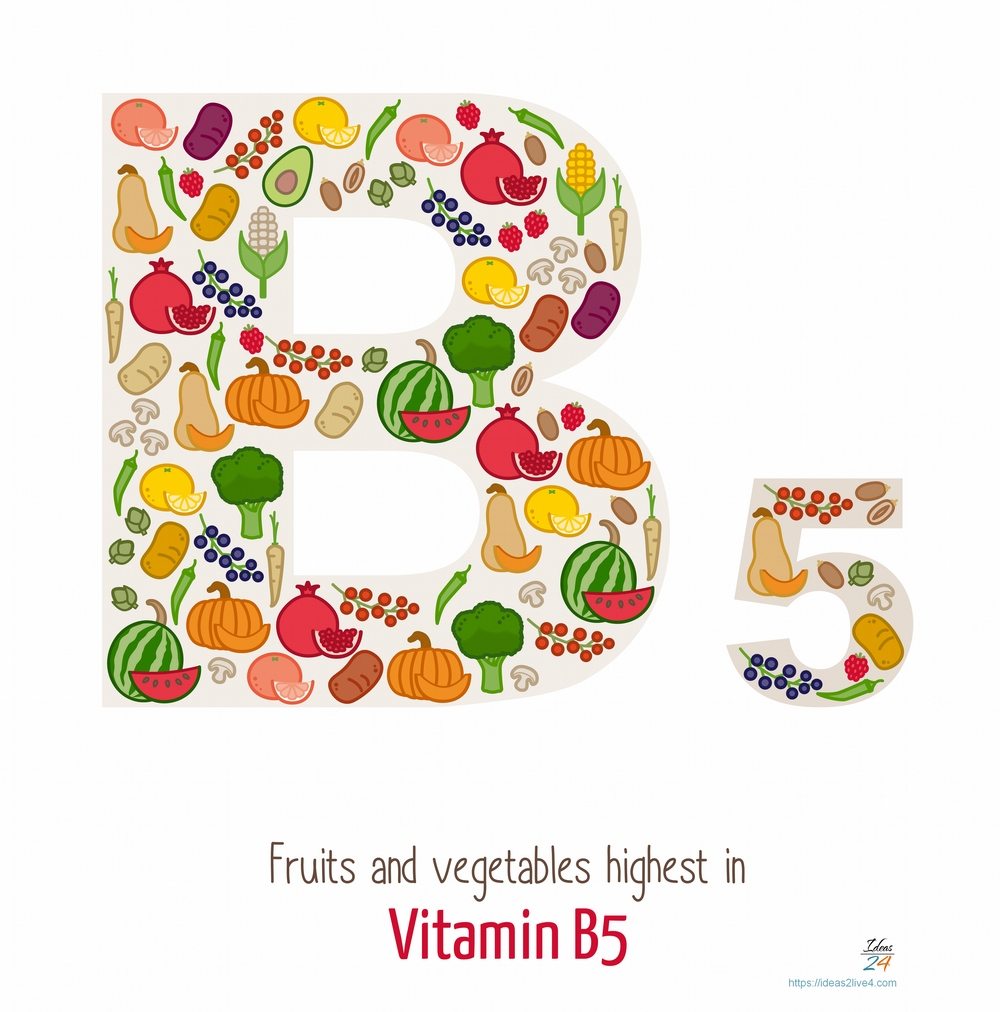Vitamin B5, or pantothenic acid, is one of the most common vitamins people are forgetting or overlooking in their diet. Yet, it’s one of the most necessary vitamins for boosting immunity and reducing a number of autoimmune conditions. With a healthy diet, you should get enough without the need for supplements. Here’s why you want to improve your lifestyle by adding more vitamin B5 to your day.
The Basics of Vitamin B5
Pantothenic acid is another water-soluble B vitamin. Every single cell in your body will have some of this vitamin, but you still need to gain more through your diet. It will help to avoid skin disorders, chronic health problems, and is proven to reduce the incidence and severity of some mental illnesses. It’s possible to manage your overall health through the addition of this vitamin in your diet.

This is available in salmon, but it’s mostly found in vegetables like broccoli, mushrooms, and cabbage. It’s also found in most legumes.
Those deficient in the vitamin are more likely to suffer from something known as burning foot syndrome. A person will feel like they have no feeling in their foot, yet have inflammatory pain that is intense and extremely irritating. Fatigue, insomnia, and low iron levels are also common in those deficient in vitamin B5.
Why You Need More Pantothenic Acid
Vitamin B5 is necessary for the metabolism, like other B vitamins. The vitamin helps the body break down food and turn it into energy that your metabolism can use. The energy then supports the neurotransmitters in the brain, which carry signals throughout the body to make sure all organs work effectively.
The mental health benefits are definitely the main focus with B5. It’s possible to help reduce stress, anxiety, and depression by getting enough of this vitamin on a daily basis. As fatigue is one of the side effects of low B5 levels, this won’t be that surprising. Fatigue can cause brain fog and high levels of cortisol in the body.
If you’re feeling low on either (or both) physical or mental energy, a supplementary boost of B5 can make an almost immediate difference.
Vitamin B5 also helps to create more red blood cells in the body. This also aids with the lack of fatigue. More red blood cells make it easier to pass oxygen around the whole body, keeping all organs (including the brain) alert. The muscles also get better levels of oxygen, improving repair and avoiding tension and stiffness.
Like many other B vitamins, pantophenic acid is also essential for the digestive tract. Since so much of the immune system is housed within the digestive system, a healthy gut helps to promote an overall healthy body. The vitamin helps to absorb more nutrients from food and makes it easier for the body to use other vitamins effectively, including other B vitamins. The body finds it easier to fight off infections and reduce inflammation, aiding to reduce chronic illnesses and autoimmune disorders.
There are many other benefits. Vitamin B5 helps to improve heart health, supports the synthesizing of cholesterol, supports wound healing and fights against skin acne.
Getting Enough Vitamin B5
It is very unlikely people will have a deficiency in this vitamin, even though it is one of the most commonly ignored. It’s present in almost any food you will eat, including meats, dairy products, legumes, nuts, and vegetables.
Those at risk of a deficiency are those who suffer from a disorder that prevents the body fully absorbing nutrients. Women using oral contraceptives or people suffering from malnutrition are also at risk. The average adult needs around 5mg of the vitamin daily for a healthy body.
Foods rich in Vitamin B5 include:
- all liver foods
- rice bran
- shitake mushrooms
- eggs
- salmon and tuna
- all nuts and many seeds
- avocado
- rosemary
- cauliflower and broccoli
- dates
Are you getting your share of vitamin B5 every day?
You can download and print a large format version of our Vitamin B5 graphic here…





